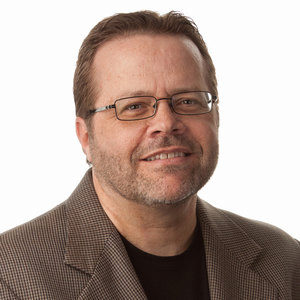I recently had the privilege of attending my niece’s wedding at Buckingham Friends Meeting House, located in a quaint village just a short drive from Philadelphia. It was a beautiful ceremony, but it had extra special significance for our family, as we all found ourselves sitting in the very same place and on the very same benches where our very first American ancestors once sat, most of whom were laid to rest in a nearby cemetery.
Established in 1702, Buckingham Friends Meeting served as a house of worship for some of the earliest Quaker immigrants to this country. Many of them were first generation Christians as well. The Friends movement was still relatively new, but its founding fathers and mothers were slowly disappearing (Margaret Fell died the same year that the meeting was opened). Now it was up to this new generation of Christ followers to carry the torch, faithfully and fearlessly bearing witness to the revolutionary gospel of our Lord Jesus Christ in the New World. And this they did, through great personal sacrifice, some of them giving their very lives in the process.
Sadly, it became painfully clear to me during my visit to Buckingham that the torch had been dropped at some point along the way. As I walked around the meeting house and read through the literature that was most prominently displayed, I was unable to find any direct reference to Jesus whatsoever. And yet it was George Fox himself who declared with great joy, “There is only one, even Christ Jesus, who can speak to thy condition.”
Some might describe this as a classic example of “mission drift.” Others might attribute it to an inevitable process of cultural adaptation and accommodation. I can only summarize my personal feelings that day with one word: heartbreaking. It was as if they were missing the whole point. To borrow from the Apostle Paul, it seemed as though they had embraced “a form of godliness” while “denying its power” (2 Tim 3:5). Correct me if I’m wrong, but were not the first Friends seeking to do the exact opposite?
As we look back over church history, including our own history as a people called Quakers, I would like to think that we might be smart enough to learn from our mistakes so that we don’t have to repeat them. But when I survey the overall health and vitality of the American church in general, and the Evangelical Friends Church in particular, I can’t help but wonder …
Like our friends in Buckingham, is it possible that we are devoting so much energy to preserving and protecting our Quaker traditions that we are missing the whole point of the gospel? (cf. Mk 7:9)
And are we also in danger of exchanging the very power of God for an empty form of godliness? (cf. 2 Tim 3:5)
I don’t have all of the answers, of course, but I would humbly offer these questions as potential “queries” that each of you may want to share with your congregations as well at some point in the near future.
In the midst of such growing concerns, I must tell you that I am encouraged by what appears to be happening at our two Friends-related colleges and universities here in Mid-America:
I recently finished teaching a course on “Spiritual Formation and the Transformational Journey” for students enrolled in the School of Graduate Studies at Barclay College. The course concluded with a three-day, intensive, face-to-face gathering on the Barclay campus. It was a wonderful, life-giving experience for all of us, and I am deeply grateful to have a small part in helping Barclay continue to fulfill its critical, core mission as a community that is called “to prepare students in a Bible-centered environment for effective Christian life, service and leadership.”
I had the privilege of speaking in chapel at Friends University several weeks ago during their Quaker Heritage Week, at which time the building that houses the graduate school was renamed in honor of John Woolman and Elizabeth Fry. I was also invited to share this same message with the Board of Trustees during their spring meetings. I couldn’t be more thrilled by recent developments at
Friends, as the University seeks to return to its roots as a “Christian University of Quaker heritage,” that “equips students to honor God and serve others by integrating their intellectual, spiritual and professional lives.”
During these increasingly dark and difficult days, when the hearts of so many appear to be “growing
cold” (Mt 24:12), may those of us who are part of the extended family of Friends here in Mid-America “hold unswervingly to the hope we profess” (Heb 10:23) and to our core calling and true identity as faithful Friends of Jesus, remaining ever mindful of the words of our Lord Jesus himself: “You are my friends if you do what I command” (Jn 15:14).
For the love of God, we can’t afford to miss the point.

Follow Us!